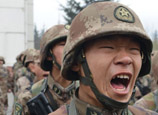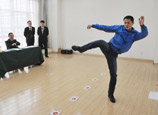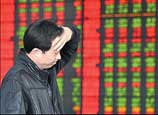
WASHINGTON, March 19 (Xinhua) -- Both China and the United States have recently completed leadership transitions, offering new hope for the two powers to build a new type of cooperative relationship that defies the zero-sum theory.
In a phone conversation on March 14, newly elected Chinese President Xi Jinping and his U.S. counterpart Barack Obama acknowledged that the two countries are facing a new historical opportunity for charting the future course of their bilateral relationship.
Both leaders promised to continue dialogues and exchanges, boost mutual trust, and enhance cooperation in a bid to achieve the goal of building a new type of big-power relationship that features coordination and cooperation instead of rivalry and confrontation.
OPENING UP NEW OPPORTUNITIES
In an Asia-Pacific policy speech made in New York last week, Thomas Donilon, Obama's top security advisor, noted that "China's leadership transition and the presidential re-election mark a new phase in U.S.-China relations with new opportunities."
Indeed, after nearly four decades of steady development, albeit not free from disturbances and setbacks, the China-U.S. relationship has gained plenty of achievements for its elevation to a higher level.
"So there's a window here that could open for improvement in relations, but windows have a way of closing quickly unless you try to go through them," said Jonathan Pollack, director of the John Thornton China Center at the Brookings Institute, a Washington-based think tank.
A solid foundation has been laid out for the construction of a new type of China-U.S. relationship. The bond between the U.S. and China has never been closer in terms of trade and economic exchanges. That's as the two countries are now mutually second largest trading partners with the annual trade volume reaching nearly 500 billion U.S. dollars in 2012.
Washington and Beijing have institutionalized high-level contacts and dialogues through regular summit meetings and talks such as the annual China-U.S. Strategic and Economic Dialogue. People-to-people and cultural exchanges have reached an unprecedented level while military exchanges and dialogues have also normalized.
In addition, China and the U.S. have been closely coordinating in dealing with top regional and global issues, including the nuclear crises involving the Korean Peninsula and Iran, counter-terrorism, energy, climate change, food security, disease control and global financial crisis.
Most importantly, both Chinese and the U.S. leaderships have endorsed the concept of building a new type of relationship that will defy the so-called zero-sum theory that says an emerging power is destined to conflict with the existing one.
Xi, during his visit to the United States as vice president last year, expressed firm support for the idea and proposed a five-point guideline for how to build a new type of big-power relationship.
The guideline includes strengthening mutual dialogues and communications, expanding pragmatic cooperation, boosting mutual strategic trust, increasing people-to-people exchanges and joining hands in dealing with challenges worldwide.
The Obama administration has also responded actively to the proposal.
"We do not want our relationship to become defined by rivalry and confrontation," Donilon said in his New York speech, adding that he rejects the theory of zero-sum game in dealing with relations with China.
Bonnie Glaser, a senior fellow at the Center for Strategic and International Studies, said the two leaders' recognition for the importance of maintaining good bilateral ties "bodes well for the relationship going forward."
"The trend over the past decade has been toward increased engagement across the board. I expect it will continue," she told Xinhua.
In a positive sign, top U.S. political and military officials, including Treasury Secretary Jacob Lew, Secretary of State John Kerry, and Chairman of Joint Chiefs of Staff Martin Dempsey, are already queuing up for visits to China in the near future with an aim to continue the high-level dialogues and cooperation in various spheres.

















 Seeking a dream wedding at Beijing Wedding Expo
Seeking a dream wedding at Beijing Wedding Expo


![]()
